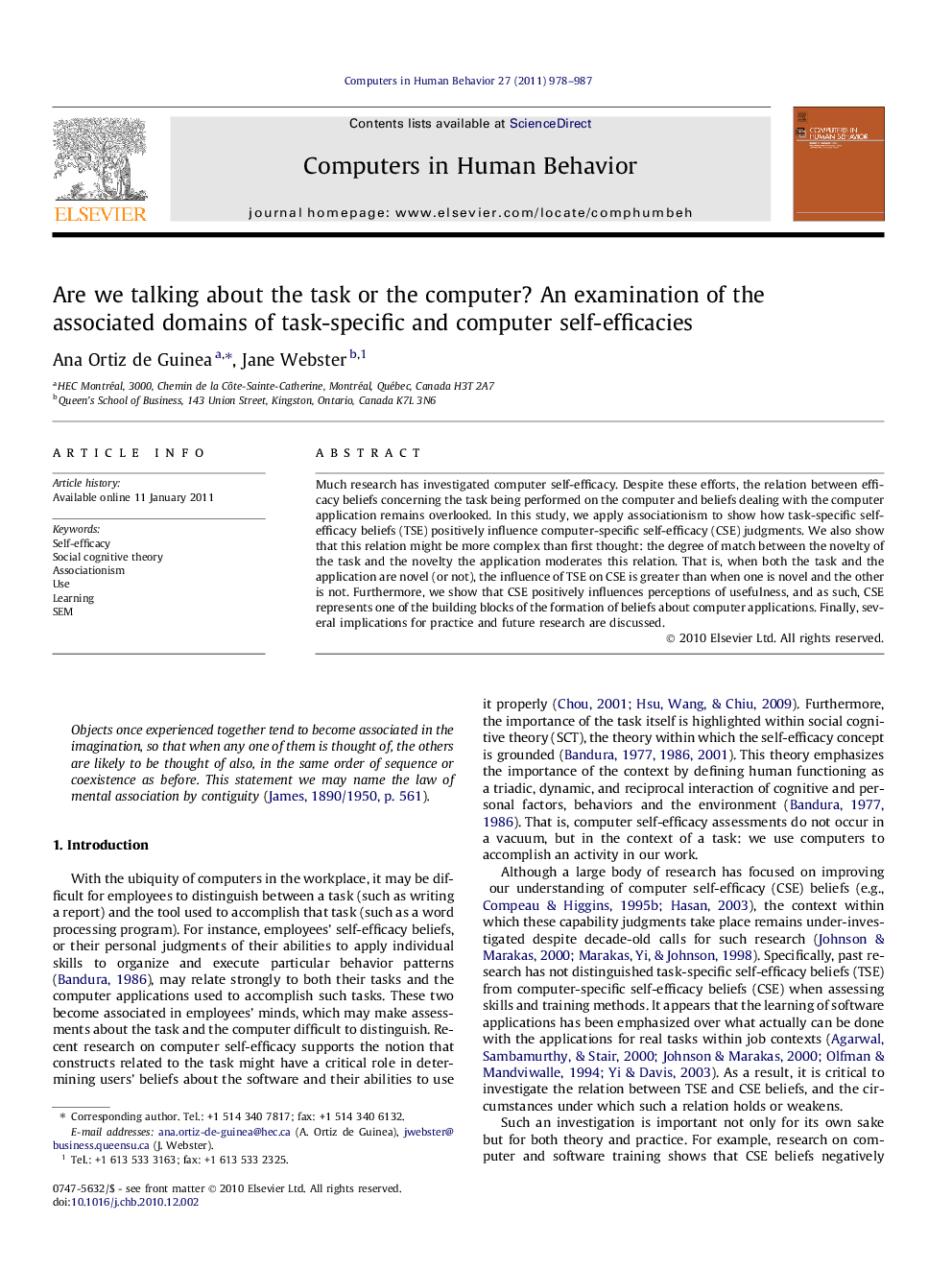| Article ID | Journal | Published Year | Pages | File Type |
|---|---|---|---|---|
| 351872 | Computers in Human Behavior | 2011 | 10 Pages |
Much research has investigated computer self-efficacy. Despite these efforts, the relation between efficacy beliefs concerning the task being performed on the computer and beliefs dealing with the computer application remains overlooked. In this study, we apply associationism to show how task-specific self-efficacy beliefs (TSE) positively influence computer-specific self-efficacy (CSE) judgments. We also show that this relation might be more complex than first thought: the degree of match between the novelty of the task and the novelty the application moderates this relation. That is, when both the task and the application are novel (or not), the influence of TSE on CSE is greater than when one is novel and the other is not. Furthermore, we show that CSE positively influences perceptions of usefulness, and as such, CSE represents one of the building blocks of the formation of beliefs about computer applications. Finally, several implications for practice and future research are discussed.
